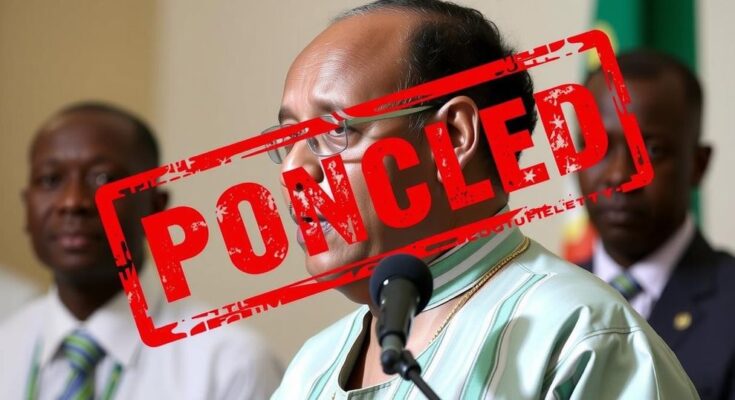Togo’s senatorial elections have been postponed to February 15 to allow political parties time to prepare. The elections are part of a contentious new constitutional reform, vigorously opposed by some parties. Major opposition groupings are boycotting the elections, citing concerns over democratic integrity under President Gnassingbé’s leadership.
Togo’s inaugural senatorial elections have been rescheduled to February 15, as announced in a presidential decree released on Friday evening. This two-week postponement aims to provide political parties with additional time to organize their campaigns effectively. The official campaign period will commence on January 30. This election represents a critical step in the enactment of a new constitution, which has faced significant opposition and criticism from various sectors of society.
Despite the delay being requested by several political parties to facilitate candidate registration, prominent opposition groups, including the National Alliance for Change (ANC), have declared their intention to boycott the election. They perceive this electoral process as part of a broader “constitutional coup d’état.” The Senate, established following a constitutional amendment in 2002, remains inactive, and its composition will consist of 61 members, with 41 senators elected by regional and municipal officials and the remainder appointed by the Prime Minister.
The newly proposed constitution intends to establish a parliamentary system, replacing the direct election of the head of state, leading to allegations that President Faure Gnassingbé is attempting to prolong his tenure indefinitely. President Gnassingbé, leader of the ruling party UNIR, has been in power since 2005, succeeding his father, who governed for 38 years. The ruling party secured 108 out of 113 seats in the April 2024 legislative elections, further consolidating its influence over Togo’s political landscape.
The political landscape in Togo has been characterized by long-standing tensions between the ruling government and opposition forces. The postponement of the senatorial elections underscores the challenges that political actors face in organizing themselves amidst criticisms of the government’s reform efforts. The introduction of a new constitution has been divisive, with opposition parties framing it as an attempt by the President to consolidate power. The Senate, though established by earlier constitutional revisions, has thus far not convened, indicating a gap between constitutional provisions and their practical implementation. Togo’s recent history of political unrest highlights the significance of these elections in shaping the country’s democratic processes.
In summary, the rescheduling of Togo’s senatorial elections to February 15 reflects ongoing tensions within the country’s political framework as parties seek to prepare adequately for participation. The criticism surrounding the new constitution and the boycott by major opposition parties further complicate the electoral process, suggesting that Togo’s political future remains uncertain. As the situation evolves, the implications of these elections will be pivotal in determining the direction of governance and democratic engagement in Togo.
Original Source: www.barrons.com




